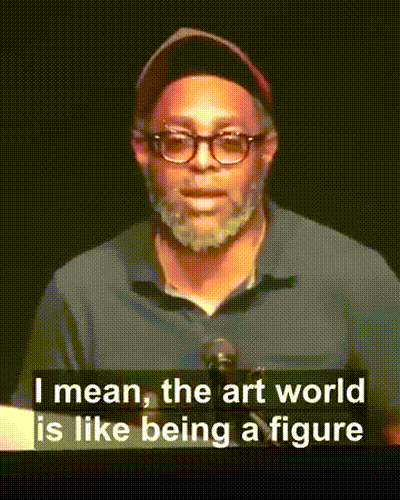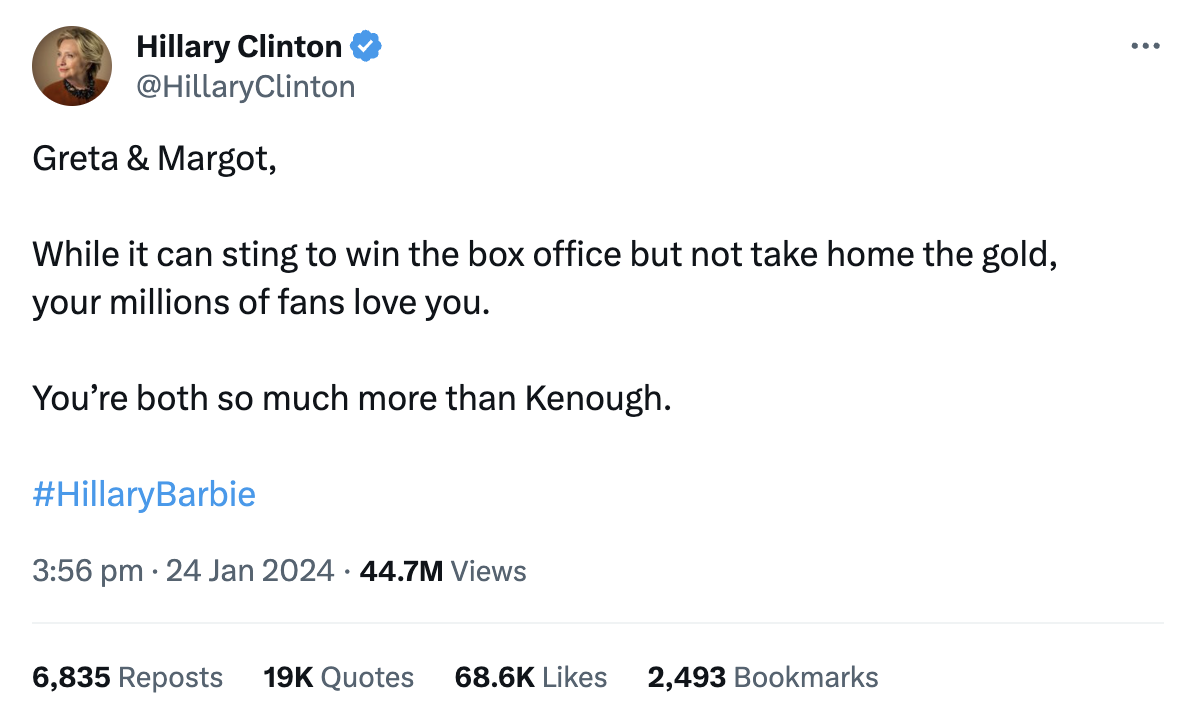White Feminism Strikes Again
Last week, the 2024 Oscar nominations were announced. With everything that’s going on in the world, not exactly the highest news story on the DEI agenda - but each year, the Academy Awards (both nominations and wins) pique our collective interest.
Last year I wrote about the mixture of joy and sorrow that many of us feel in relation to the Oscars. The parallel between the world’s most glitzy institution, and the (oftentimes less glamorous) arena of our workplaces, local communities, government bodies, is clear. We are - as I noted back then - “wrestling with the hopeful desire to transform institutions that have long excluded certain groups, and the deep concern that these institutions may never truly recognise or include us.”
On the face of it, it’s easy to understand the uproar about Barbie. The juicy irony that a film about patriarchy - one which expertly skewers our ideas about gender roles and power - received an acting nomination for its male lead (Ken), and not its female (Barbie). The Internet, inevitably, was up in arms. Ostensibly, this demonstrated the film’s entire conceit; that women can do all the hard work, be impressive, intelligent history-makers - and still not get the credit they deserve.
The trouble is all forms of artistic critique are entirely subjective. There’s no clear, bias-free measure of “what was this year’s best film?” - a question not dissimilar to one we are often posed in the DEI world “how can we hire the best candidate?” How do we define best? What is the criteria? And what are the invisible barriers that determine which candidates even get in the room, get exposure, build the skills they need to be seen and recognised, and get enough work under their belt to sustain a career? It’s significant that the gatekeepers of one of the most public, coveted honours are overwhelmingly white and male.
As Emma Thompson quipped back in 2016, at the height of the #OscarsSoWhite controversy:
“Let’s face it, the Oscar membership is mainly old, white men. That’s the fact of it. Either you wait for them all to die, or kill them off slowly. There’s so many options, aren’t there?”
In DEI there are steps we can take to build inclusion into - for example - a hiring process. To challenge existing biases about what ‘good’ looks like. But can recognition in the art world ever truly be ‘fair’, when the so-called arbiters of taste rarely represent the world around them? The video artist and cinematographer Arthur Jafa hit the nail on the head when he spoke about the industry’s lack of recognition of black artists:
Arthur Jafa explains why Black people will never reach the pinnacle of success in the arts.
Let’s zoom out on the furore for a moment. Barbie (a comedy film which was - whilst enormously clever and entertaining - essentially a long sponsored advertisement for Mattel) received an impressive eight Oscar nominations, including the Best Picture nod. America Ferrera picked up a Best Supporting Actress nomination for her role in the film, and both Greta Gerwig and Margot Robbie still stand to take home a statue, albeit not in the Best Actress or Best Director categories.
This great injustice (eight nominations) still apparently wasn’t getting the required attention. It needed the input of a person of gravitas. A statesperson. Enter Hillary Clinton. An ex US Secretary of State and Presidential nominee, who has had precious little to say about the unfolding humanitarian crises affecting millions of women - from Sudan, to Congo, to Gaza (where thousands are enduring C-sections without anaesthetic, using tent scraps as period products, and bleeding to death in childbirth) - decided that she simply must weigh in. Apparently this was the issue on which to raise awareness to her +30 million follower-strong platform. And she did so, via a thinly veiled reference to herself, of course:
It gets worse. The LA Times’ bizarre criticism of the snub went so far as to insult the other women nominated this year: “If only Barbie had done a little time as a sex worker. Or barely survived becoming the next victim in a mass murder plot. Or stood accused of shoving Ken out of the Dream House’s top window.”
Is this what feminist solidarity really looks like? Throwing shade at the first ever Native American nominated for an acting Oscar, for her work in a film about a real-life Native American woman surviving a real-life murder plot? The narrow focus on the so-called Barbie ‘snub’ has consumed and enveloped popular discourse. The cacophony of white women’s rage has drowned out all else, and in doing so has dampened what could have been a celebration of historic firsts for women of colour this year. Both America Ferrera and last year’s history-making winner Michelle Yeoh are being asked to weigh in, whilst out promoting their own successes and career milestones. The unmitigated gall.
From the Suffragettes, to the ‘Lean In’ phenomenon of the 2010s, white feminism has long been accused of focusing on the priorities, wants, and needs of educated, rich white women - and at the expense of women of colour, low-income women, LGBTQ+ women. By focusing less on transformative structural change, and more on the issue of already-privileged women’s admission to the most elite corridors of power, this brand of ‘feminism’ leaves behind more than it truly fights for. Of all the think pieces, articles and tweets on Barbie’s snub, precious few have even remotely engaged an intersectional lens.
As the great Audre Lorde rightly pointed out:
“Those of us who stand outside the circle of this society's definition of acceptable women; those of us who have been forged in the crucibles of difference -- those of us who are poor, who are lesbians, who are Black, who are older -- know that survival is not an academic skill. It is learning how to take our differences and make them strengths. For the master's tools will never dismantle the master's house. They may allow us temporarily to beat him at his own game, but they will never enable us to bring about genuine change. And this fact is only threatening to those women who still define the master's house as their only source of support.”

